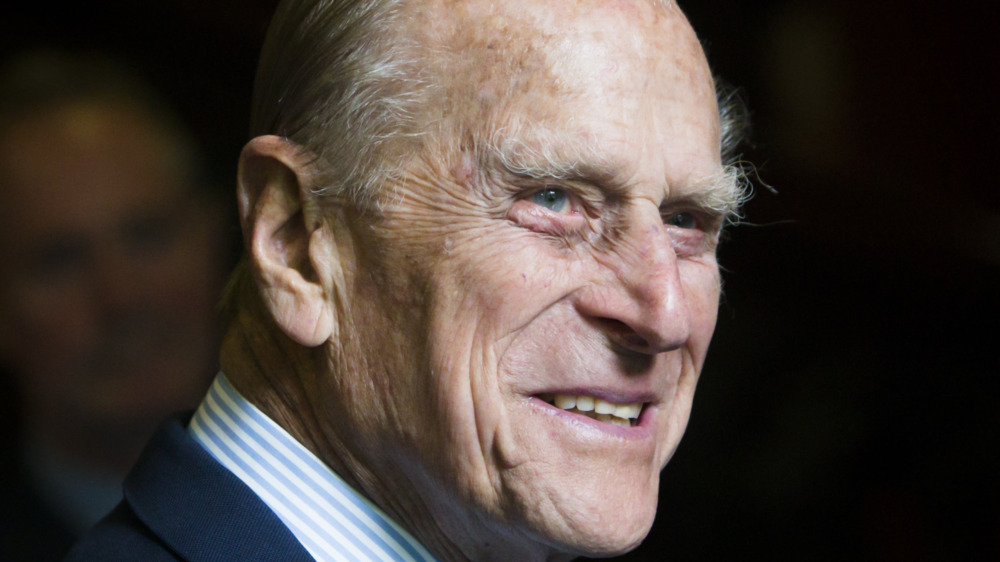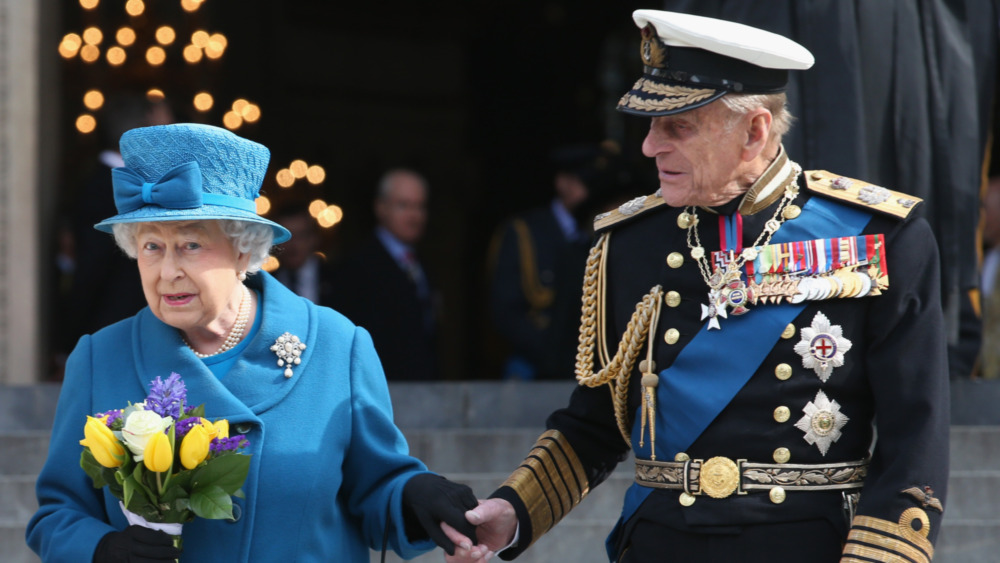The Major Thing Prince Philip Gave Up To Marry Queen Elizabeth
Prince Philip and Queen Elizabeth II wed on November 20, 1947. Married for 73 years, the royal couple had four children — Charles, Anne, Andrew, and Edward — eight grandchildren — Prince William, Prince Harry, Peter Phillips, Zara Tindall, Princess Beatrice, Princess Eugenie, Lady Louise Windsor, and James, Viscount Severn — and 10 great-grandchildren (via Biography).
On April 9, just a few weeks after having a procedure done for a pre-existing heart condition, Prince Philip, the Duke of Edinburgh, died at the age of 99 (via Town & Country).
His funeral will take place on Saturday, April 17, at the St George's Chapel at Windsor Castle, as reported by BBC. Charles Anson, the queen's former press secretary, told People that Queen Elizabeth was somewhat prepared for her husband's passing, sharing, "She has an enormous amount of family support for her and will also take comfort from the enormity of the support from all over the world."
Prince Philip made a sacrifice but took his role very seriously
Prince Philip was born to Prince Andrew and Princess Alice, but for him to be able to marry then Princess Elizabeth, he had to give up his title. Harper's Bazaar states that he had to technically become a British subject and sacrifice the fact that he was heir to the throne in Greece and Denmark.
He then took his mother's maiden name, Mountbatten, and received new titles: Baron Greenwich, Earl of Merioneth, Duke of Edinburgh, and the queen's prince consort, as is tradition in British royalty for a queen's husband.
"He took very seriously his role as a support for the Queen as monarch," Anson went on to say in People, when speaking of the duke. Adding, "There were some things they had to deal with together that were difficult, but it was a long marriage with a great deal of happiness." Devoted to Elizabeth until the end, Anson revealed, "He was a natural of his generation to be at his wife's side." Adding that "He very quickly came to terms" with his role as consort, and was happy "to be in that role of support, as well as running his own life."

